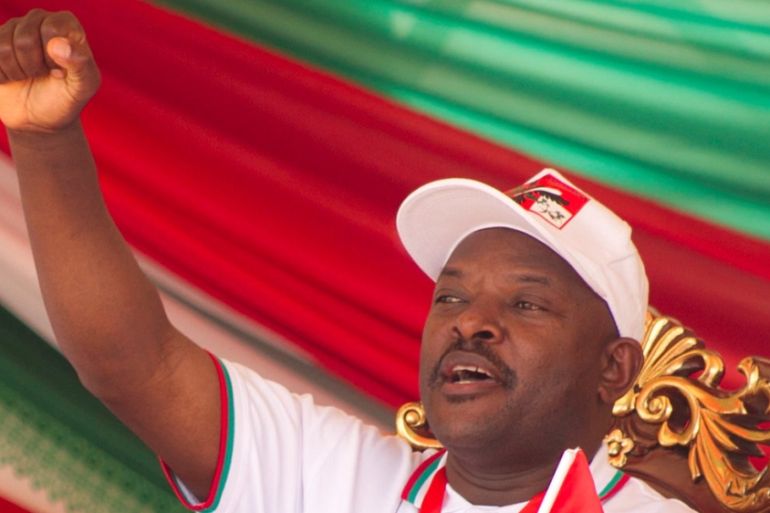Burundi withdraws permits from APRODH rights group
Government accuses non-profit and non-governmental organisations of stirring up hatred and tarnishing nation’s image.

Burundi’s government has withdrawn permits from a prominent human rights organisation and several other non-profit groups, accusing them of stirring up hatred and tarnishing the nation’s image, an order issued by the interior ministry said.
Non-profit and non-governmental organisations have often been accused of taking sides against the government in a political crisis that has rumbled on since last year over President Pierre Nkurunziza’s election for a third term.
Among those whose permits were withdrawn was the Association for the Protection of Human Rights and Detained Persons (APRODH), run by prominent activist Pierre Claver Mbonimpa, who survived an assassination attempt by unidentified gunmen last year and then left for Europe where he remains.
Mbonimpa and other activists have criticised the president for seeking a third term, accusing him of violating the constitution and a peace deal that ended civil war in 2005. They have accused the state and security forces of rights abuses.
The government cites a ruling by the constitutional court saying the president could seek another term. It also dismisses allegations of abuses.
“In spite of the multiple warnings the associations … have deviated from their objectives as written in the statute and keeps on tarnishing the country’s image and sowing hatred and divisions among the Burundian people,” according to the order signed by Interior Minister Pascal Barandagiye.
The order was seen by the Reuters news agency on Monday. It said the order came into force on the date of signing, October 19.
The other four organisations named were also involved in a range of rights and development issues. The groups and activists involved with them have previously been accused of siding with the opponents of the government.
In a similar order, signed by the minister and also seen by Reuters on Monday, the activities of five organisations, including a journalists union, were suspended. The groups were accused of “disturbing public order and state security”.